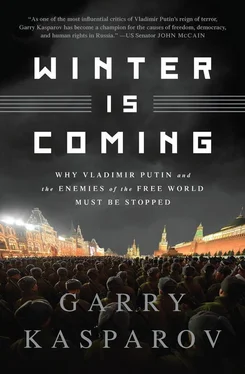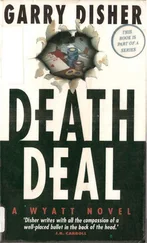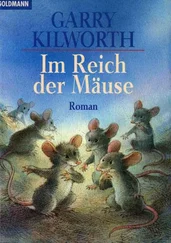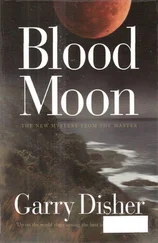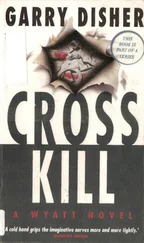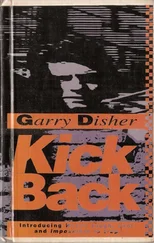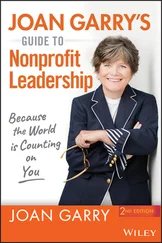Negotiating with another country’s territory as collateral has a long history. The most obvious example is from 1938, when Hitler graciously offered not to take all of Czechoslovakia in exchange for getting the Sudetenland without any complaints from Britain and France. North Korea and Iran also like to have one-on-one talks with the United States, a way of saying nobody else matters. But Ukraine is not USA versus Russia; it’s the civilized world versus a dictator, and the United Nations vote supported that assessment ten to one.
The mandate for continued pressure on Putin is clear, if only the West has the courage to maintain it and increase it. Otherwise, just as Czechoslovakia was absent from the “great power” negotiations in 1938, Ukraine’s fledgling government will be relegated to the role of a spectator, a patient under local anesthetic watching helplessly as the surgeons slice away. For the United States to participate in talks is well and good, especially as a signatory of the 1994 Budapest Memorandum guaranteeing Ukraine’s territory. But Ukrainian representatives should be present at every step and the people of Ukraine must be kept informed throughout before other nations get too far along in deciding what is in Ukraine’s best interests.
Putin once again refuted the predictions of his defenders in the West and continued his invasion of Eastern Ukraine. A few months later, as summer approached, thousands of Ukrainians, including many civilians, were dead and hundreds of thousands had been forced to flee. The Ukrainian military was severely overmatched by the “rebel” forces, not that there had ever been a rebel or separatist movement in Eastern Ukraine worth mentioning before Putin discovered a huge and very well-equipped army of them. Europe and the United States refused to provide weapons to Ukraine, limiting themselves to humanitarian assistance and nonlethal aid.
Actions directed at Putin were also shockingly weak despite the clear presence of Russian forces and Russian arms flooding into Ukraine. It’s one thing for academics and pundits to calmly sympathize with Putin and his “vital interests” and his “sphere of influence,” as if 50 million Ukrainians should have no say in the matter. It’s quite another thing for Barack Obama, David Cameron, and Angela Merkel to fret about the “instability” and “high costs” caused by sanctions against Russia, as if that could be worse than the instability caused by the partial annexation of a European country by a nuclear dictatorship, carried out with impunity.
This fecklessness was sad and expected, but I thought it might finally come to an end on July 17 when Malaysia Airlines flight 17 (MH17) was blown out of the sky over Eastern Ukraine by a surface-to-air missile, killing all 298 people aboard. The local separatist leadership immediately boasted about shooting down what they had thought was another Ukrainian military plane, only recanting their statements and deleting their posts when it was revealed to have been a civilian aircraft.
Of course the shock and horror would turn to rage and shame among the leaders of the free world that the war in Ukraine had been allowed to fester. Of course Putin would realize he’d overplayed his hand and attempt to preempt the backlash by withdrawing his forces and his support for Ukrainian separatist terrorists. Of course the fact that two-thirds of the passengers were European (193 of them Dutch) would lead to massive Western protests and stiff penalties against Russia.
Of course none of that happened.
I said at the time that MH17 wouldn’t change Putin’s calculations in any way, but I hoped it would provoke a Western response that would. Somehow I managed to underestimate the cowardice of the Western world once again. The rhetoric changed a little, and briefly, but little else. An investigation was announced, although it would take a long time to get started since the separatist forces would not allow the wreckage and bodies to be collected until they had looted them. Where was the rage? Nobody believed the separatists’ excuses or Russian propaganda about anything other than a Russian missile. Was it because Ukraine was far away, was poor and unimportant, and had been turned into a war zone? Had Putin’s forces shot down that same aircraft over Amsterdam or Kuala Lumpur would it have made a difference? I’m not sure I want to know the answer.
So who was to blame? This is not a simple question even if you know the answer. That is, of course the person who pushed the button that launched the missile is to blame; that is the easy part. Shall we just arrest him and try him for murder? Responsibility is a greater concept than that. You have the commander who gave the order to push the button. Then the person who provided the missiles to the separatists. Then there are the officials who opened the border to allow military weaponry to cross into Ukraine and the ministers and generals in Moscow who gave those orders. Then we come to the desk where all power resides in Russia, the desk of the man those ministers and generals obey very carefully: the desk of Vladimir Putin.
Blaming Putin for these 298 deaths is as correct and as pointless as blaming the man who pressed the button that launched the missile. Everyone had known for months that Russia arms and supports the separatists in Ukraine. Everyone had known for years that a mouse does not squeak in the Russian government without first getting Putin’s permission. So, yes, Putin is responsible for those 298 deaths, more than anyone else.
But blaming Putin for invading Ukraine—for annexing Crimea, for giving advanced surface-to-air missiles to separatists—is like blaming that proverbial scorpion for stinging the frog. It is expected. It is his nature. Instead of worrying about how to change the scorpion’s nature or, even worse, how best to appease it, we must focus on how the civilized world can contain the dangerous creature before more innocents die.
Therefore let us cast our net of responsibility where it may do some good. We turn to the leaders of the free world who did nothing to bolster the Ukrainian border even after Russia annexed Crimea and made its ambitions to destabilize Eastern Ukraine very clear. Is the West to blame? Did they push the button? No. They pretended that Ukraine would not affect them. They hoped that they could safely ignore Ukraine instead of defending the territorial integrity of a European nation under attack. They were paralyzed by fear and internal squabbles. They resisted strong sanctions on Russia because they were worried about the impact on their own economies. They protected jobs but lost lives.
Would this tragedy have happened had tough sanctions against Russia been put into effect the moment Putin moved on Crimea? Would it have happened had NATO made it clear from the start that they would defend the sovereignty of Ukraine with weapons and advisors on the ground? We will never know. Taking action requires courage and there can be high costs in achieving the goal. But as we now see in horror there are also high costs for inaction, and the goal still has not been achieved.
The argument that the only alternative to capitulation to Putin is World War III is for the simple-minded. There were, and always are, a range of responses. Financial and travel restrictions against Putin’s cronies and their families and harsh sanctions against key Russian economic sectors may also do some damage to European economies. Until MH17, Europe could argue about how much money their principles were worth. After MH17 they had to argue about how much money 298 lives were worth.

As Russian troops and armored columns advance in Eastern Ukraine the Ukrainian government begs for aid from the free world. That’s the same free world Ukrainians hoped would receive them and protect them as one of its own after the protesters of Maidan grasped their victory paid in blood. The leaders of the free world, meanwhile, are still struggling to find the right terminology to free themselves from the moral responsibility to provide that protection. Putin’s invasion of a sovereign European nation is an “incursion,” much like Crimea—remember Crimea?—was an “uncontested arrival” instead of Anschluss. A civilian airliner was blown out of the sky by Russian-backed and Russian-armed (and likely Russian, period) forces in Eastern Ukraine and, despite the 298 victims, the outrage quickly dissipated into polite discussions about whether it should be investigated as a crime, a war crime, or neither.
Читать дальше
